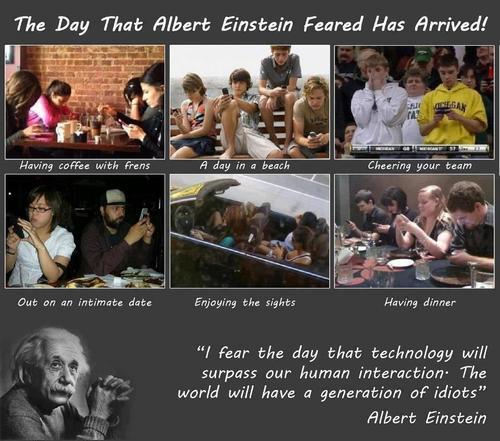The Great Communicators
We can communicate with other people in many different ways. We can talk and write, and we can send messages with our hands and faces. There is also the phone (including the mobile!), the fax, and e-mail. Television, film, painting, and photography can also communicate ideas.

Animals have ways of exchanging information, too. Bees dance and tell other bees where to find food. Elephants make sounds that humans can't hear. Whales sing songs. Monkeys use their faces to show anger and love.

But this is nothing compared to what people can do. We have language – about 6000 languages, in fact. We can write poetry, tell jokes, make promises, explain, persuade, tell the truth, or tell lies. And we have a sense of past and future, not just present.
Communication technologies were very important in the development of all the great societies:
-
Around 2900 BC, paper and hieroglyphics transformed Egyptian life.
-
The ancient Greeks loved the spoken word. They were very good at public speaking, drama and philosophy.
-
The Romans developed a unique system of government that depended on the Roman alphabet.
-
In the 14th century, the printing press helped develop new ways of thinking across Europe.
Radio, film and television have had a huge influence on society in the last hundred years. And now we have the Internet, which is infinite. But what is this doing to us? We can give and get a lot of information very quickly. But there is so much information that it is difficult to know what is important and what isn't. Modern media is changing our world every minute of every day.
Languages of the world - Interesting facts about languages
http://www.bbc.co.uk/languages/guide/languages.shtml
Language learning tips:
http://www.omniglot.com/language/
Are children really better at foreign language learning?
It’s the classic ‘old dog, new tricks’ excuse. Many adult learners, in fits of frustration, will claim that adults are simply poor at languages. They say children have more porous minds, better memories, and more adaptability. I’m sorry to report, it’s a myth.
EUROCALL
http://www.eurocall-languages.org/
http://www.zompist.com/whylang.html
Languages: we're learning them in the wrong way
http://www.newstatesman.com/2013/09/languages-were-learning-them-wrong-way
Almost all human beings acquire a language (and sometimes more than one), to the level of native competency, before age 5. How do children accomplish this remarkable feat in such a short amount of time?
http://www.nsf.gov/news/special_reports/linguistics/learn.jsp
How do you become fluent in 11 languages?
Twenty-year-old Alex Rawlings has won a national competition to find the UK's most multi-lingual student.
The Oxford University undergraduate can currently speak 11 languages - English, Greek, German, Spanish, Russian, Dutch, Afrikaans, French, Hebrew, Catalan and Italian.
Entrants in the competition run by the publishers Collins had to be aged between 16 and 22 and conversant in multiple languages.
Alex drew on all his skills to tell BBC News about his passion for learning languages and how he came to speak so many.
Produced by the BBC's Susannah Reid.

https://blog.talaera.com/idioms-communication
https://www.greatspeech.co/communication-quiz/
https://takelessons.com/blog/language-facts-z14
https://englishexam.blog.hu/2021/10/12/reading_comprehension_fill_in_the_gaps_377

